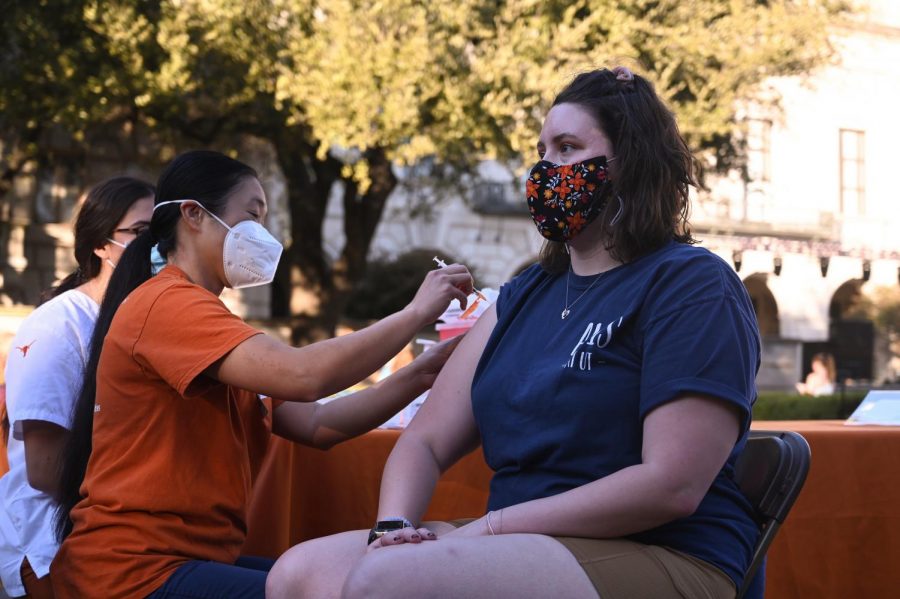UT honors COVID-19 vaccine researchers
November 18, 2021
University and city officials celebrated UT scientists, researchers, health professionals and volunteers Wednesday for their contributions to the COVID-19 vaccine and their efforts to vaccinate Texans.
The event highlighted molecular biosciences professor Jason McLellan and researchers Nianshuang Wang and Daniel Wrapp for their assistance in developing a key component of the COVID-19 vaccine. Their research produced the spike protein found in the vaccine that trains the immune system to produce virus-fighting antibodies.
The event was postponed after its original scheduling in October due to inclement weather and featured live performances, food and a pop-up vaccine clinic. McLellan received his booster shot at the pop-up clinic.
“I got into the sciences to try and help make some impact on human health, and to see something come from the lab and get injected into my own arm and the arms of everybody here is really exciting,” McLellan said.
McLellan’s lab also developed HexaPro, a modified spike protein that is now assisting in the production of affordable vaccines for low and middle-income countries, and is royalty-free for any company to use, according to previous reporting by The Daily Texan.
“It’s expected to reduce the cost of vaccination from something like $20 a shot … to two cents per shot,” said Ilya Finkelstein, a molecular biosciences associate professor who helped engineer HexaPro. “This could make a massive difference in a global campaign to vaccinate.”
Christy Hjorth, a biochemistry graduate student who worked on protein expression and purification for HexaPro, also got her booster shot at the pop-up clinic.
“It was incredibly rewarding working on it,” Hjorth said. “A lot of long hours and effort going into stuff, but it was really great seeing the translation from the bench to what is now going into all the health clinics.”
UT researchers are now working toward a universal vaccine that would protect against all future variants of the coronavirus. Researchers tested the universal vaccine in animals and will get results in the upcoming months, McLellan said.
“We’d love to have a vaccine already made ahead of time, so we don’t have a 10 month lag,” McLellan said. “It could still take years, or a decade, but it’s a hot topic. A lot of people in the field are moving into this universal coronavirus space.”



